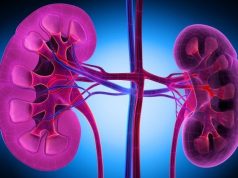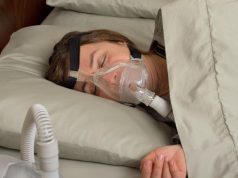Evidence is insufficient for assessing balance of benefits and harms of OSA screening in general population
By Elana Gotkine HealthDay Reporter
TUESDAY, Nov. 15, 2022 (HealthDay News) — The U.S. Preventive Services Task Force (USPSTF) concludes that the current evidence is insufficient to recommend screening for obstructive sleep apnea (OSA) in the general adult population. These findings form the basis of a final recommendation statement published in the Nov. 15 issue of the Journal of the American Medical Association.
Cynthia Feltner, M.D., M.P.H., from RTI International-University of North Carolina at Chapel Hill Evidence-based Practice Center, and colleagues reviewed the evidence on screening for OSA in asymptomatic adults or those with unrecognized OSA symptoms. Data were included for 86 studies with 11,051 participants. The researchers found that the accuracy of the Multivariable Apnea Prediction score followed by unattended home sleep testing for detecting severe OSA syndrome was 0.80 and 0.83 in two studies. Studies assessing the accuracy of other screening tools were heterogenous, with inconsistent results. Positive airway pressure and mandibular advancement devices were associated with reduced Epworth Sleepiness Scale scores; however, trials of positive airway pressure found no significant benefit associated with mortality or cardiovascular events and had limited reporting of other health events.
Based on these findings, the USPSTF concludes that the current evidence is insufficient to examine the balance of benefits and harms of OSA screening in the general adult population of asymptomatic adults and adults with unrecognized symptoms of OSA (I statement).
“Since the evidence on screening all adults for sleep apnea is limited, health care professionals should use their judgment when deciding who to screen, and patients who have concerns about their sleeping should talk to their health care professional about their symptoms,” a USPSTF member said in a statement.
Final Recommendation Statement
Copyright © 2022 HealthDay. All rights reserved.








